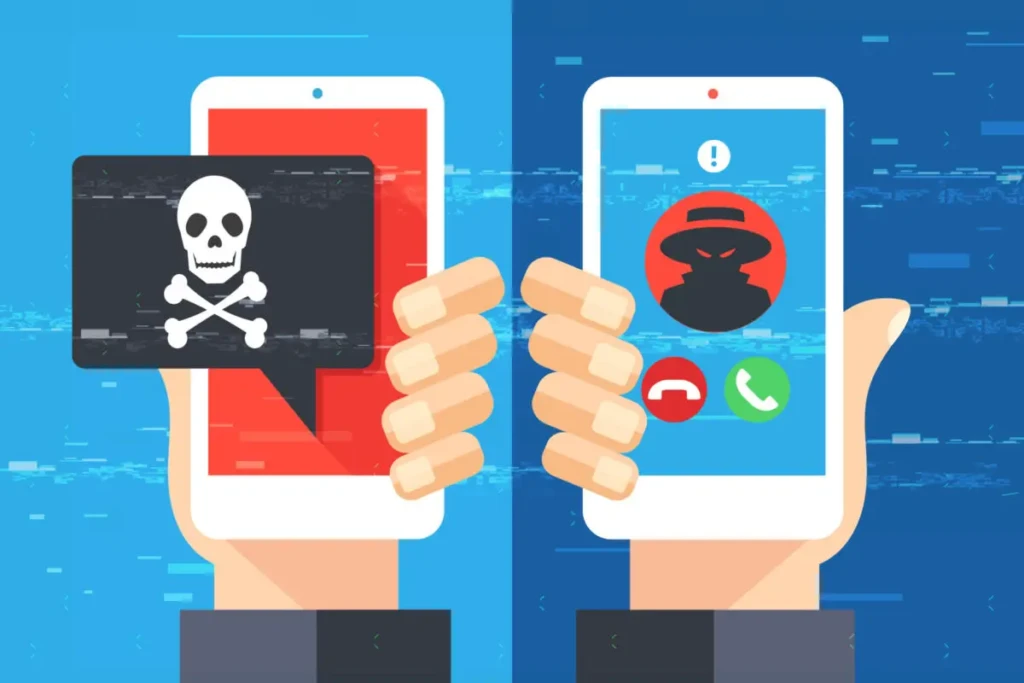What is the Purpose of Gaslighting?
By Tim McGuinness, Ph.D. – Anthropologist, Scientist, Director of the Society of Citizens Against Relationship Scams Inc.
Gaslighting is all about Manipulation & Control
Online social engineering relationship & other scams rely heavily on the technique of “Gaslighting” to hold and manipulate its victims.
However, gaslighting is one of the most pervasive psychological techniques in use the world over!
Understanding its purpose and the effects that it has on its victims can help us recognize its practitioners and help victims recognize when they are being gaslit!
According to Healthline.com:
What is gaslighting?
Gaslighting is a form of emotional abuse that’s seen in abusive relationships. It’s the act of manipulating a person by forcing them to question their thoughts, memories, and the events occurring around them. A victim of gaslighting can be pushed so far that they question their own sanity.
The term “gaslighting” comes from a play and subsequent movie called “Gaslight.” In the movie, the devious husband, played by Charles Boyer, manipulates and torments his wife, played by Ingrid Bergman, to convince her she’s going mad.
Gaslighting, whether intentional or not, is a form of manipulation. Gaslighting can happen in many types of relationships, including those with bosses, friends, and parents. But one of the most devastating forms of gaslighting is when it occurs in a relationship between a couple.
Signs of gaslighting
According to Robin Stern, Ph.D., author of the book “The Gaslight Effect: How to Spot and Survive the Hidden Manipulation Others Use to Control Your Life,” signs that you are a victim of gaslighting include:
- No longer feeling like the person you used to be
- Being more anxious and less confident than you used to be
- Often wondering if you’re being too sensitive
- Feeling like everything you do is wrong
- Always thinking it’s your fault when things go wrong
- Apologizing often
- Having a sense that something’s wrong, but being unable to identify what it is
- Often questioning whether your response to your partner is appropriate (e.g., wondering if you were too unreasonable or not loving enough)
- Making excuses for your partner’s behavior
- Avoiding giving information to friends or family members to avoid confrontation about your partner
- Feeling isolated from friends and family
- Finding it increasingly hard to make decisions
- Feeling hopeless and taking little or no pleasure in activities you used to enjoy
Now let’s look at the world we live in daily!
In the instance of socially engineered cybercrime gaslighting is mostly as described above. However, gaslighting is far more common than just with cybercrimes, it impacts us almost every minute of every day that we are awake!
Gaslighting in the Workplace
In the workplace, a gaslighter can be a negative manager, a scheming coworker, a prejudiced workgroup, a disgruntled customer/client, or a smearing business competitor.
Workplace gaslighting can also be the result of systemic, institutional bias, or negative media and social media coverage. A gaslighter may target and victimize groups as well as individuals.
According to Psychology Today, the following four attributes often distinguish workplace gaslighting from other types of challenges on the job:
- The difficult work situation is based on persistent individual, group, or institutional bias and negativity, rather than solid proof, strong facts, established cases, and/or proven data.
- The difficult work environment creates a negative/unfavorable narrative about the gaslit individual (contrary to evidence) and damages the gaslightee’s personal or professional reputation.
- The mistreatment persists over a period of time, despite a clear track record of the gaslightee’s positive collaboration, contributions, and accomplishments.
- When approached on the matter, the gaslighter typically denies mistreatment and can become defensive, contentious, dismissive, and/or evasive. Instead of using verification and facts to problem-solve, the gaslighter may escalate and become more aggressive, or stonewall and become more passive-aggressive.
Marketing & Politics
You can see how criminals and evildoers can use gaslighting to change perceptions and behaviors and actions but think about what it really does to individuals and by extension to a population or group.
Gaslighting stifles discussion and descent because it attacks conviction and surety of a person’s knowledge and beliefs.
Ironically, science can be used to gaslight as well. The tobacco industry used gaslighting techniques (and still does) to promote smoking! Countless fringe medical businesses do exactly the same. They make the consumer uncertain of their own knowledge in an effort to get them to either consider buying or using a product, or at the very least not to try to convince others of how it might be bad, immoral, or unhealthy.
Yet, once a person is gaslit, the fake belief can be spread by them like a virus. Look at vaccines as an example. We all know that there are risks in any medication – humans are not all the same and it is totally true that people react differently. But that does not negate the value of vaccines. Anti-Vaxers gaslight each other to reinforce their anti-science beliefs.
The amount of gaslighting in product marketing is nothing short of stunning. Marketing claims, negative comparisons, unsubstantiated benefits – these are all potential gaslighting. How can you know that a claim is not gaslighting? There will be confirmable verifiable facts – it really is that simple.
We have just been through a unique experience in our political lives, where two parties and candidates went to war to try to win the hearts and minds of the American populace. And gaslighting was right there at the heart of at least one party’s principal toolsets in helping force an outcome in their favor.
In exploring this we can see not only how it was used to manipulate an election, but how it is used everywhere else. Unfortunately, this article cannot go into the depth that would be needed for a full exploration, so many of the issues and concepts have to be limited, but hopefully, this will be enough to open your eyes and get you looking at what is being done to you.
What Does Gaslighting Really Do?
As has been said, gaslighting’s real underlying purpose is to get a person to doubt their convictions, certainty, and beliefs. It aims to turn an active certain person into an uncertain passive person. By doing this, it wants to convince you that you are wrong, that you should fear, and that everyone that thinks like you is the problem.
In politics, there are two approaches that were taken this time out. 1) Hate Trump and We know best. or 2) We are all in this together to make America Great Again. These seem to have been the core themes of each side. Of course, there is much more hype that is thrown out to support each position, but these two seem to be the essence.
Of course, for purposes of this discussion, these are simplified down to the two central themes to help you recognize the difference (even if you disagree with one of them), and see how gaslighting was employed.
Gaslighting never deploys controlling messaging, it always approaches the individual to instill uncertainty and fear. Gaslighting never develops loyalty and community (except through fear), it drives wedges and separation, and victimhood. Gaslighting has to tear down an individual in order to manipulate and control them.
This statement is true of all gaslighting, whether it is in a scam, a marketing campaign, a sales pitch, a narcissistic boss, a criminal’s defense, or a dangerous politician.
Gaslighting never aspires to a person’s existing higher ideals. It aspires to tear down the individual to force-feed them with the gaslighter’s ideals and objectives.
Not everything negative is gaslighting. There are real dangers in the world. For example, when the oil industry and the automakers were pushing leaded gasoline on the world they were gaslighting. But when the lone scientist on the side of reason decried the dangers of leaded gas, that was not. So in that case the negativity was not gaslighting, the apparent positivity was because it served to undermine the acceptance of lead as a danger to us all.
This brings to mind global warming. The problem here is that there is a political motive behind the movement for climate accords, and by definition, it means there is another agenda. Right now it is almost impossible to know which side is gaslighting, so the best option is to wait for the proof, not what some say is proof, but what is real recognizable proof. There appears no dispute that the climate is changing, just what the cause is. So let’s ignore this topic for now.
Of the world’s major ideologies, gaslighting is an essential part of most of the dictatorial ones. From fundamentalism to communism, they all depend on a small cadre of elites that tell the populace what they should believe, and who their enemies are, and the population is sufficiently uncertain that they go along with it. In the end, the populations choose ignorance rather than doing the work to know the truth. Ignorance and gaslighting go hand in hand.
Summary
Regardless of what political party you belong to, do not let the elites tell you what to believe. Do your own fact-based research, and remember that sources of facts can also have their own bias. Wikipedia is not an unbiased source, any more than either political party is. Twitter and Facebook and Google are all profoundly biased. This makes it much harder to find what is fact in that you have to dive into the bias and motivation of each source too.
This article is not trying to tell you what is right or wrong, but only to introduce you to gaslighting so you can recognize it in action. In the end, each person accepts what they accept. The astounding fact of humanity is that about half will mostly get it wrong.
At least if you understand the techniques of manipulation you have a chance to get it right more often than not!
Remember
Gaslighting …
- Never promotes positivity (unless it is to defeat a truth)
- Never promotes loyalty (unless it is to make you doubt your current loyalties to suck you into a new group)
- Never promotes self-determination (you are wrong, we are right)
- Never promotes your own certainty (you are not capable of learning for yourself, you have to accept our facts)
- Always promotes doubt (you are wrong, always)
- Always promotes fear (if you don’t listen to us, bad things will happen)
Don’t be gaslit! Don’t follow the herd. Think for yourself!
More ScamsNOW.com Articles
-/ 30 /-
What do you think about this?
Please share your thoughts in a comment below!
5 Comments
Leave A Comment
TABLE OF CONTENTS
CATEGORIES
![NavyLogo@4x-81[1] What is the Purpose of Gaslighting?](https://scamsnow.com/wp-content/uploads/2025/04/NavyLogo@4x-811.png)
ARTICLE META
Important Information for New Scam Victims
- Please visit www.ScamVictimsSupport.org – a SCARS Website for New Scam Victims & Sextortion Victims.
- SCARS Institute now offers its free, safe, and private Scam Survivor’s Support Community at www.SCARScommunity.org – this is not on a social media platform, it is our own safe & secure platform created by the SCARS Institute especially for scam victims & survivors.
- SCARS Institute now offers a free recovery learning program at www.SCARSeducation.org.
- Please visit www.ScamPsychology.org – to more fully understand the psychological concepts involved in scams and scam victim recovery.
If you are looking for local trauma counselors, please visit counseling.AgainstScams.org
If you need to speak with someone now, you can dial 988 or find phone numbers for crisis hotlines all around the world here: www.opencounseling.com/suicide-hotlines
Statement About Victim Blaming
Some of our articles discuss various aspects of victims. This is both about better understanding victims (the science of victimology) and their behaviors and psychology. This helps us to educate victims/survivors about why these crimes happened and not to blame themselves, better develop recovery programs, and help victims avoid scams in the future. At times, this may sound like blaming the victim, but it does not blame scam victims; we are simply explaining the hows and whys of the experience victims have.
These articles, about the Psychology of Scams or Victim Psychology – meaning that all humans have psychological or cognitive characteristics in common that can either be exploited or work against us – help us all to understand the unique challenges victims face before, during, and after scams, fraud, or cybercrimes. These sometimes talk about some of the vulnerabilities the scammers exploit. Victims rarely have control of them or are even aware of them, until something like a scam happens, and then they can learn how their mind works and how to overcome these mechanisms.
Articles like these help victims and others understand these processes and how to help prevent them from being exploited again or to help them recover more easily by understanding their post-scam behaviors. Learn more about the Psychology of Scams at www.ScamPsychology.org
SCARS INSTITUTE RESOURCES:
If You Have Been Victimized By A Scam Or Cybercrime
♦ If you are a victim of scams, go to www.ScamVictimsSupport.org for real knowledge and help
♦ SCARS Institute now offers its free, safe, and private Scam Survivor’s Support Community at www.SCARScommunity.org/register – this is not on a social media platform, it is our own safe & secure platform created by the SCARS Institute especially for scam victims & survivors.
♦ Enroll in SCARS Scam Survivor’s School now at www.SCARSeducation.org
♦ To report criminals, visit https://reporting.AgainstScams.org – we will NEVER give your data to money recovery companies like some do!
♦ Follow us and find our podcasts, webinars, and helpful videos on YouTube: https://www.youtube.com/@RomancescamsNowcom
♦ Learn about the Psychology of Scams at www.ScamPsychology.org
♦ Dig deeper into the reality of scams, fraud, and cybercrime at www.ScamsNOW.com and www.RomanceScamsNOW.com
♦ Scam Survivor’s Stories: www.ScamSurvivorStories.org
♦ For Scam Victim Advocates visit www.ScamVictimsAdvocates.org
♦ See more scammer photos on www.ScammerPhotos.com
You can also find the SCARS Institute’s knowledge and information on Facebook, Instagram, X, LinkedIn, and TruthSocial
Psychology Disclaimer:
All articles about psychology and the human brain on this website are for information & education only
The information provided in this and other SCARS articles are intended for educational and self-help purposes only and should not be construed as a substitute for professional therapy or counseling.
Note about Mindfulness: Mindfulness practices have the potential to create psychological distress for some individuals. Please consult a mental health professional or experienced meditation instructor for guidance should you encounter difficulties.
While any self-help techniques outlined herein may be beneficial for scam victims seeking to recover from their experience and move towards recovery, it is important to consult with a qualified mental health professional before initiating any course of action. Each individual’s experience and needs are unique, and what works for one person may not be suitable for another.
Additionally, any approach may not be appropriate for individuals with certain pre-existing mental health conditions or trauma histories. It is advisable to seek guidance from a licensed therapist or counselor who can provide personalized support, guidance, and treatment tailored to your specific needs.
If you are experiencing significant distress or emotional difficulties related to a scam or other traumatic event, please consult your doctor or mental health provider for appropriate care and support.
Also read our SCARS Institute Statement about Professional Care for Scam Victims – click here
If you are in crisis, feeling desperate, or in despair, please call 988 or your local crisis hotline – international numbers here.
More ScamsNOW.com Articles
A Question of Trust
At the SCARS Institute, we invite you to do your own research on the topics we speak about and publish. Our team investigates the subject being discussed, especially when it comes to understanding the scam victims-survivors’ experience. You can do Google searches, but in many cases, you will have to wade through scientific papers and studies. However, remember that biases and perspectives matter and influence the outcome. Regardless, we encourage you to explore these topics as thoroughly as you can for your own awareness.
























![scars-institute[1] What is the Purpose of Gaslighting?](https://scamsnow.com/wp-content/uploads/2025/04/scars-institute1.png)

![niprc1.png1_-150×1501-1[1] What is the Purpose of Gaslighting?](https://scamsnow.com/wp-content/uploads/2025/04/niprc1.png1_-150x1501-11.webp)
It is interesting to me how many ways gaslighting is used (i.e.in an abusive way, in the workplace, marketing and politics). This article really puts in perspective how our daily lives are affected by gaslighting.
Such a sad situation, that people have to be this way. I experienced gaslighting in my first marriage. The confusion and feeling of insanity were destructive. It took me years to get anywhere near to feeling happiness again.
Gaslighting really opened my eyes to carefully examine both sides of the story…and then there is the truth. It is not always what it seems. Critical thinking is essential and matters greatly.
Gaslighting seems to be everywhere these days. Occasional reality checks seem to be warranted.
Very interesting tactice to cause confusion and open the questioning of reality.